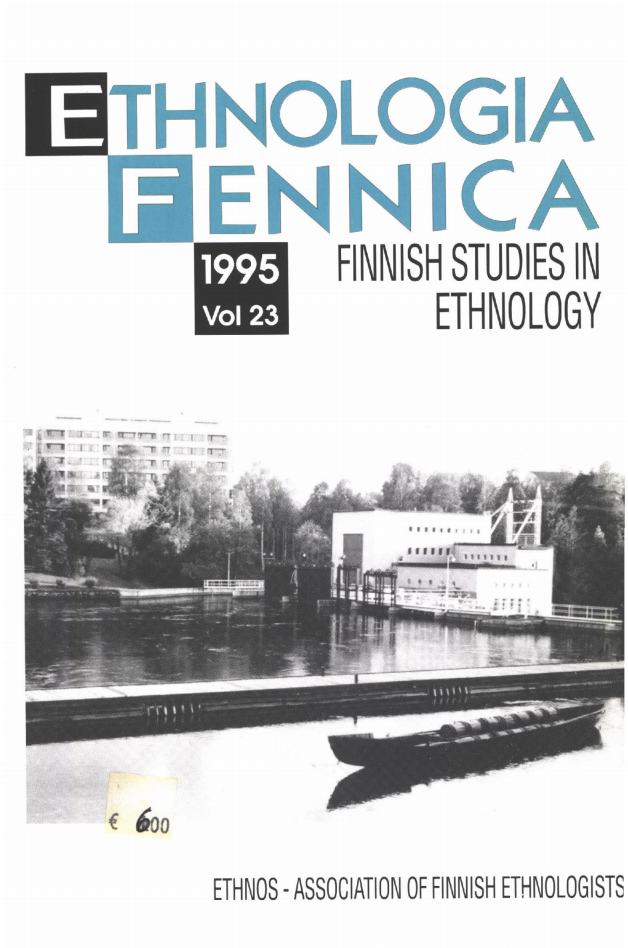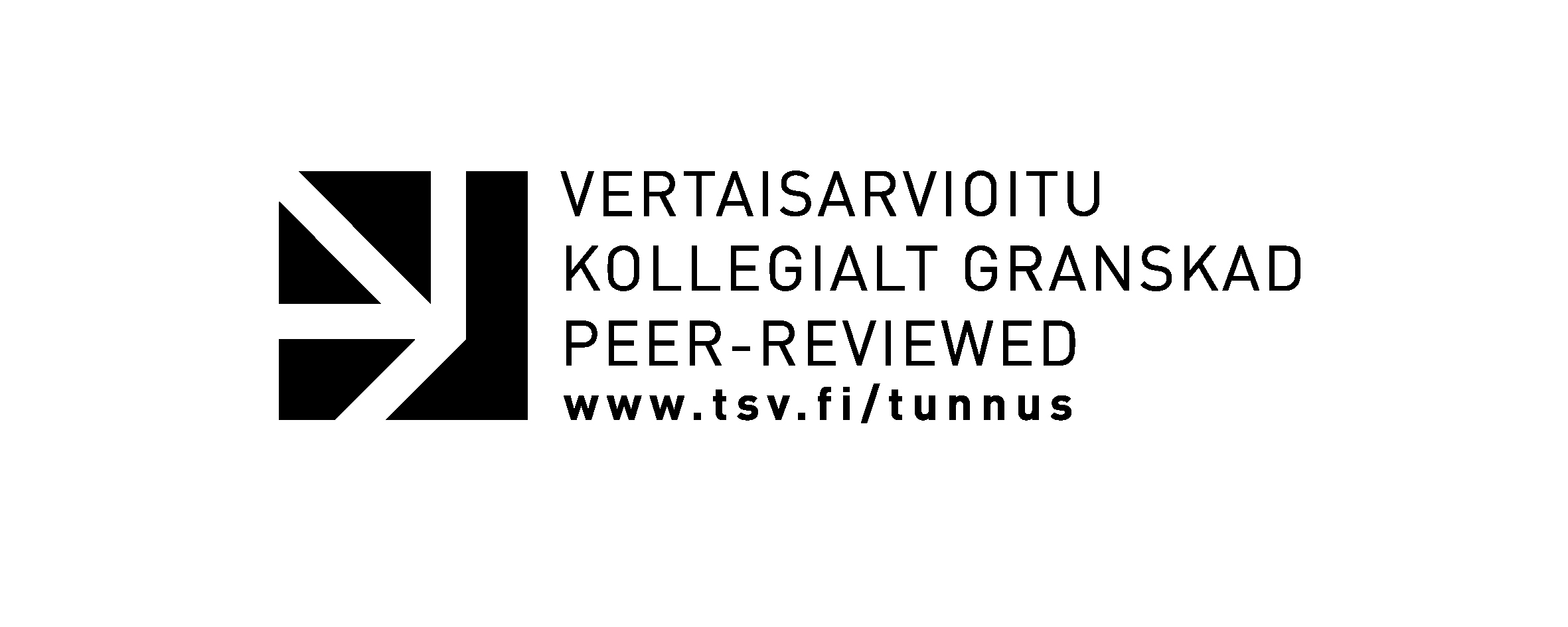Ethnologia Fennica is an international journal of the Association of Finnish ethnologists. The journal publishes original scholarly articles, review articles, congress reports, and book reviews that promote Finnish ethnological research.
Arkistot - sivu 2
-
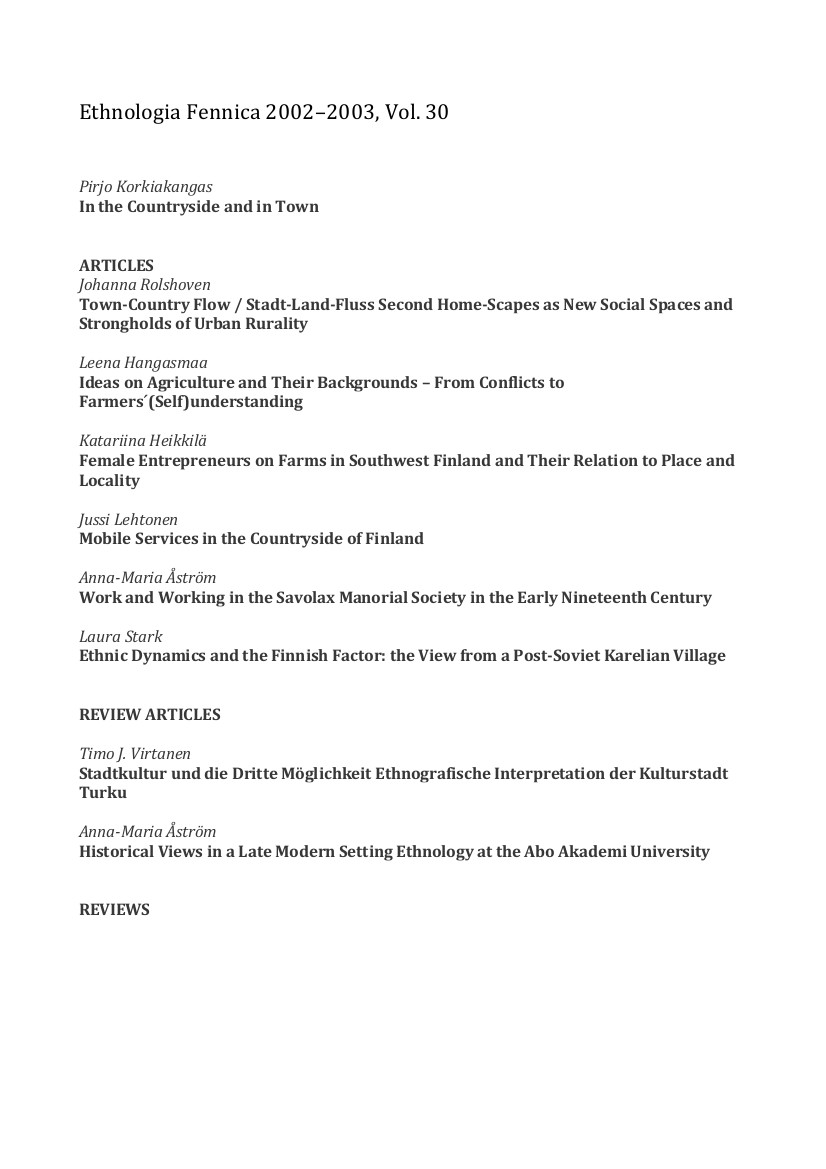
In the Countryside and in Town
Vol 30 (2003)The 30-year history of Ethnos, the Association of Finnish Ethnologists, was celebrated in conjuction with the second Ethnological Colloqium organised in Turku in March 2002. The theme of two-day seminar In the country and in town. Represantions of the countryside and towns produced by research and museums attracted a large number of ethnologists ffrom different fields. The present double issue of Ethnologica Fennica is in part based on the presentations given in the seminar. It became obvious in the meeting that ethnological research of the countryside and towns and the museum work connected to them are in quest of new forms and theoretical starting-points.
-
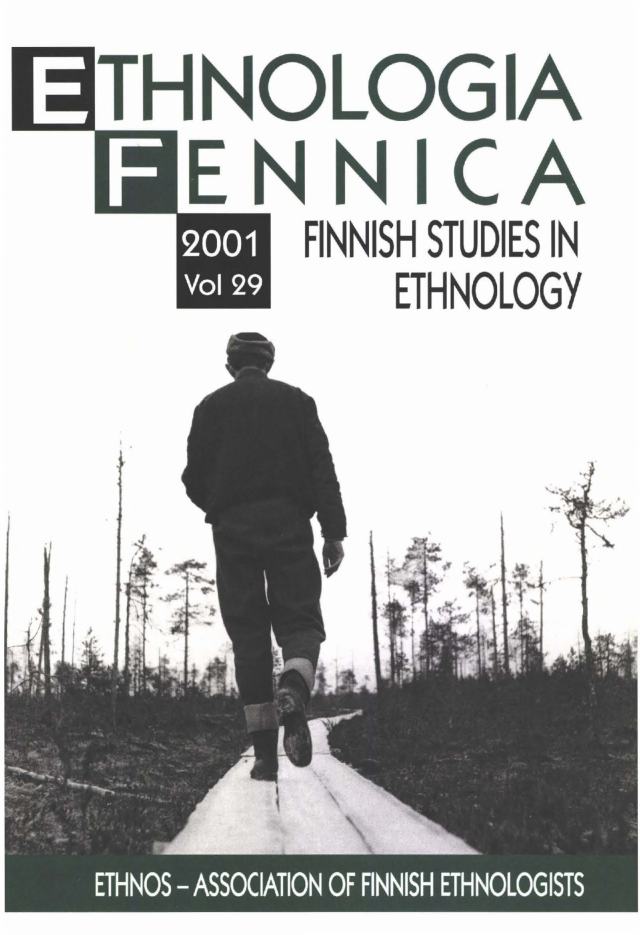
Glimpses on the Field of Ethnological Research
Vol 29 (2001)The study of values, appreciations, and identity has long been of interest to the Finnish ethnological research. At times, it has been more prominent and, at other times, it has remained in the background. Examining these issues is tied to a social and cultural context. There is currently a lot of social and cultural discussion about the nature of Finnish identity in the context of the European Union. The central question in this discussion concerns the degrees of preserving an identity: will our identity be lost or will it perhaps gain more strength under pressure of "becoming European"? One very distinct problem has been the concern for the vitality of the Finnish countryside. The position of the countryside is naturally undermined by our own internal development, which is leading to the desertion of the countryside, while people and services centre in the urban areas.
-
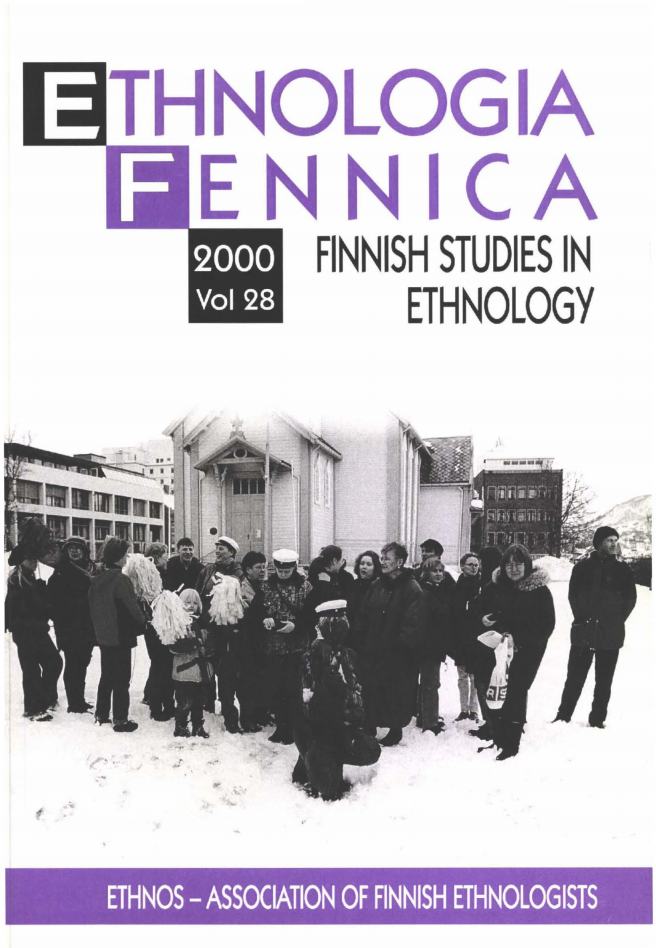
People in Unfamiliar Environments
Vol 28 (2000)The 1995 volume of Ethnologia Fennica explored the relationship between people and their environments from the perspective of constructed, natural, historical, mythical, and technological environments. This thematic of man and the environmcnt is further extended and expanded in the current volume of Ethnologia Fennica. The emphasis is on cultural environment, and the approaches take focus on the experiences, ideas, and values of the individual the five articles of the volume discuss how moving to an unfamiliar environment affects people's everyday life, or how people make themselves adapt to the prevailing customs and conceptions characteristic to the culture of their new environment. The articles cover a large geographical and cultural sphere from the Finnic inhabitants of the United States and Northem Norway to the Eastern Mari in Bashkortostan and further to the Ghanaians living in Finland and the Finland-Swedes.
-
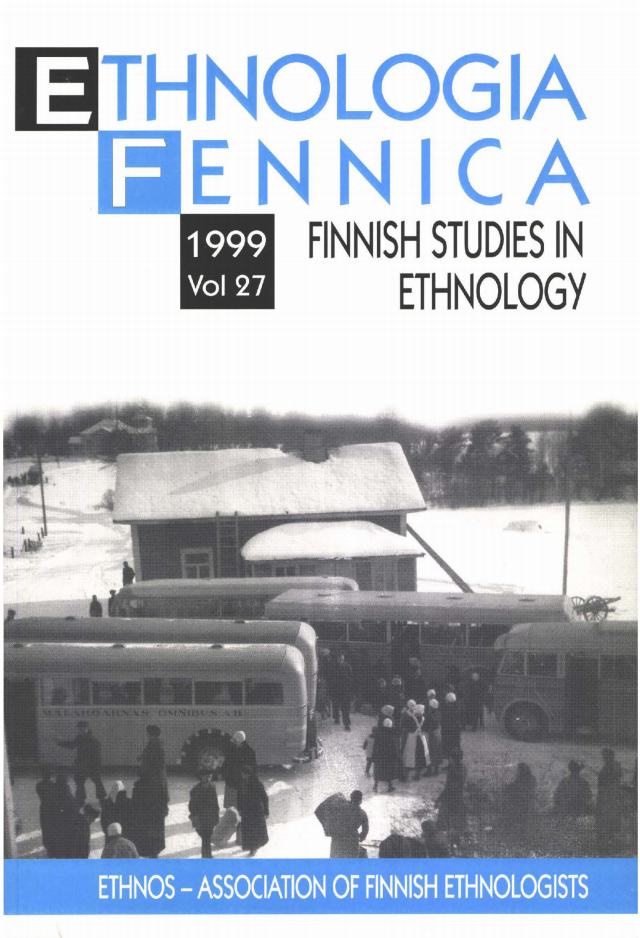
War and Peace, Exceptional Times
Vol 27 (1999)The themes of the 1999 spring seminar arranged by Ethnos, the association of Finnish ethnologists,
were war, peace, and exceptional times as objects for research in the fields of ethnological and related studies. The first three articles in the present volume of Ethnologia Fennica are based on lectures given at this seminar. In addition, the theme of the fourth article is closely associated with war and peace. Thematically speaking, it seems that the interest of Finnish ethnologists is focused on war-time and the traumas and sentiments linked to it.The Finnish collective memory and emotionality were shaped and shaken especially by the Winter War (1939 - 1940) and the Continuation War (1941-1944). Also, it was not until the last couple of decades when the bitterest traumas in recent Finnish history, caused by the Civil War (1918), have started to unwind through research in various fields of study. The Civil War created an atmosphere in which the need and will for the defence of the country gained emphasis as well as the need to build armament; this is another theme this joumal deals with.
-
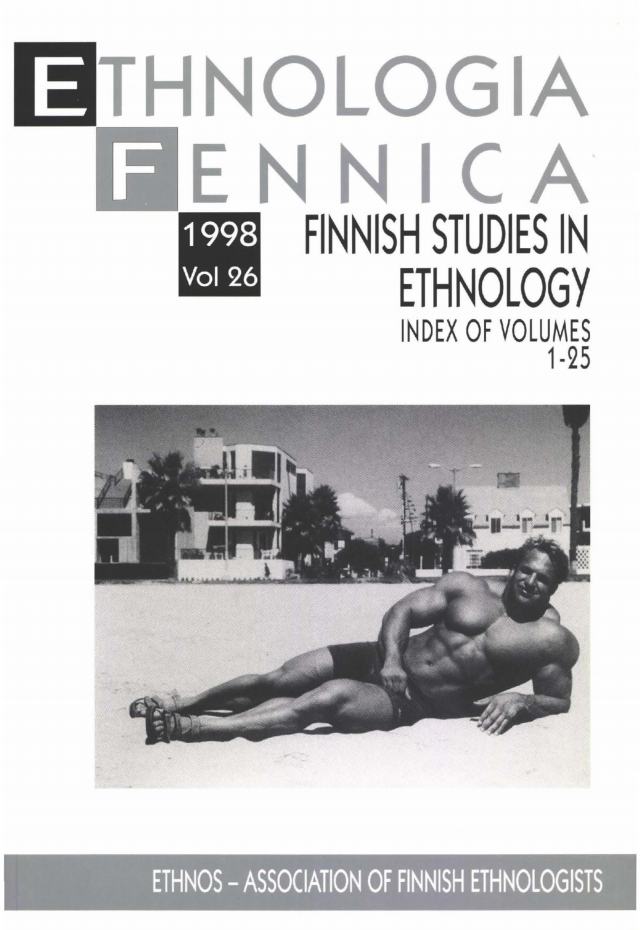
Masculinity and Objects
Vol 26 (1998)The study of objects has for a long time been an important connection between Finnish ethnologists, for example both for those employed by museums or by the departments of ethnology at universities. Recently, there have not been too many ethnologists working in this traditional field whereas, for example, gender has been one of the leading trends in cultural studies.
At its seminar of October 1998 at the University of Jyväskylä the Association of Finnish Ethnologists, Ethnos, connected the study of objects with the study of masculinity. Two papers - both of which represent the extremes of manliness - presented in that seminar are now published in this years volume of Ethnologia Fennica: Taina Kinnunen's article discusses bodybuilding and also how the bodybuilders way of life can even become like a religion. Jan Löfström points out features considered masculine which can on certain occasions be seen as typical parts of the gay uniform.
A third article makes the picture complete. ln his article on real uniforms, Juhani U.E. Lehtonen deals with the founding of the Finnish Army and the circumstances of the Civil War which took place in the year 1918.
-
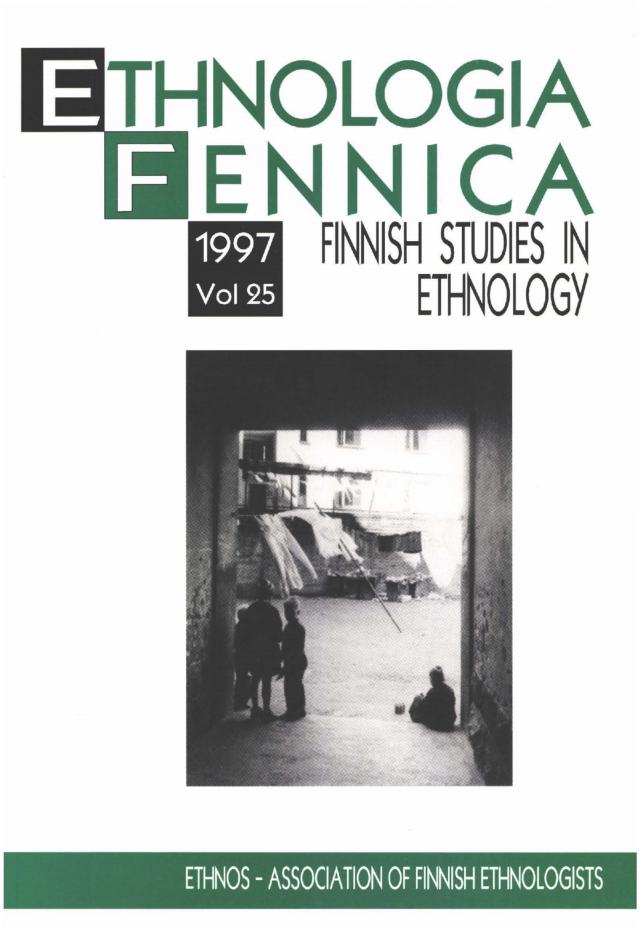
Vol 25 (1997)
In September 1997 Finnish ethnologists gathered in Helsinki in a seminar with a theme related to recent discussions around Memory and Remembering from the ethnological point of view. The association of Finnish Ethnologists, Ethnos, celebrated its 25th anniversary with this seminar. It was time to look back - and into the future - in order to contemplate the question of what Finnish ethnology has been and what it will be in the future.
In this volume of Ethnologia Fennica we have collected articles revised from four seminar papers with commentaries by experts in the same field. Together they summarize current themes in Finnish ethnological research. Subjects vary from rural villages to urban settings and museums, from remembering to forgetting. The dialogue between the authors of the articles and the commentators represents different views of ethnological research.
-
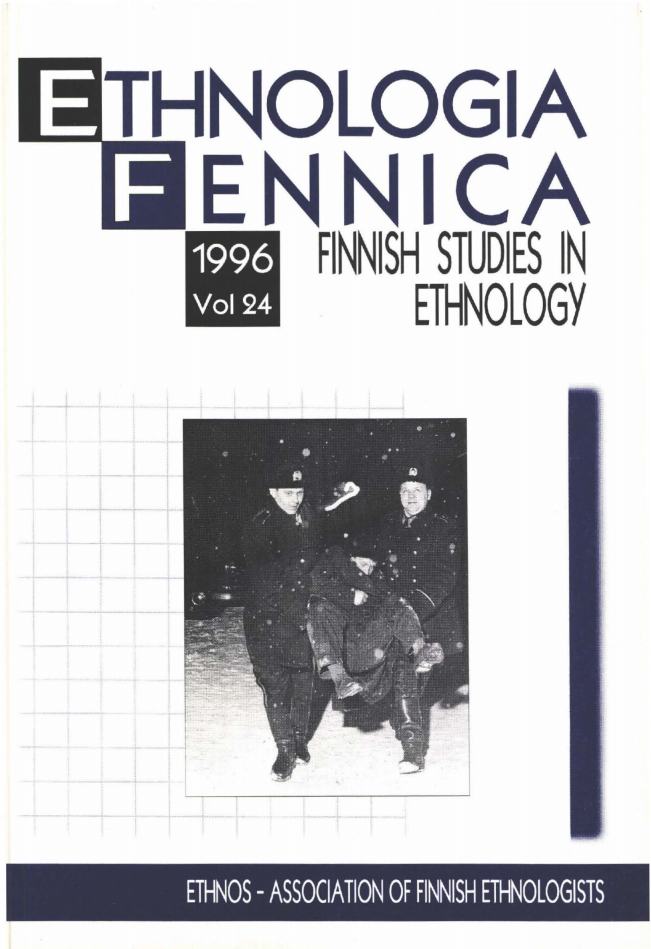
Vol 24 (1996)
The Association of Finnish Ethnologists, Ethnos, arranged in November 1996 a seminar with the theme Marginal Phenomena. At the seminar were taken up borders, marginalization and being on the edge from the viewpoints of culture, economy and society. In this volume of Ethnologia Fennica we have collected articles revised of four seminar papers, all of which deal with the breaking down of cultural borders or marginalization from fresh perspectives.

